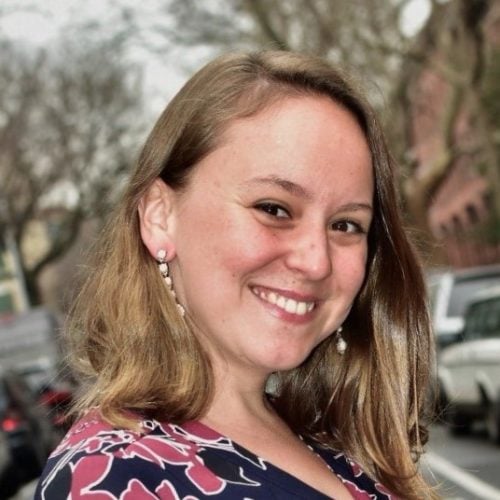
Recent publications
Journal Articles
Book Chapters
Reports and Briefs
Recent presentations
Related Professional Experience
Samantha (Sam) Melvin, PhD joined Erikson’s Herr Research Center as an Assistant Research Professor in 2022 after completing her PhD in Early Childhood Education Policy from Teachers College, Columbia University. She brings over a decade of experience as an interdisciplinary researcher, early childhood educator, and adult learning facilitator to the Erikson community.
At Erikson, Dr. Melvin directs and collaborates on community-engaged, policy-relevant research projects focused on understanding and transforming early childhood policies and systems to equitably meet the needs of diverse children, families, and educators, with a particular focus on elevating the voices and value of home-based childcare professionals. Her work leverages mixed methods and fuses knowledge from developmental science, early childhood education, sociology, and policy analysis to inform systemic change.
Raised by a single parent, a family childcare provider, a cooperative preschool, and public schools, Dr. Melvin is a fierce advocate for community-centered learning and enriching early childhood experiences as vehicles of social justice and joy for young children and those who care for them.